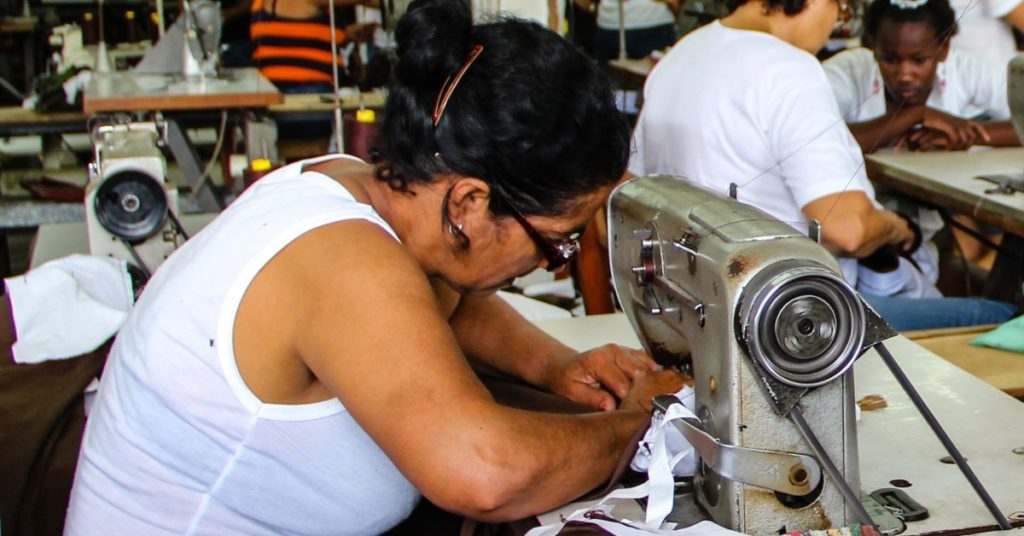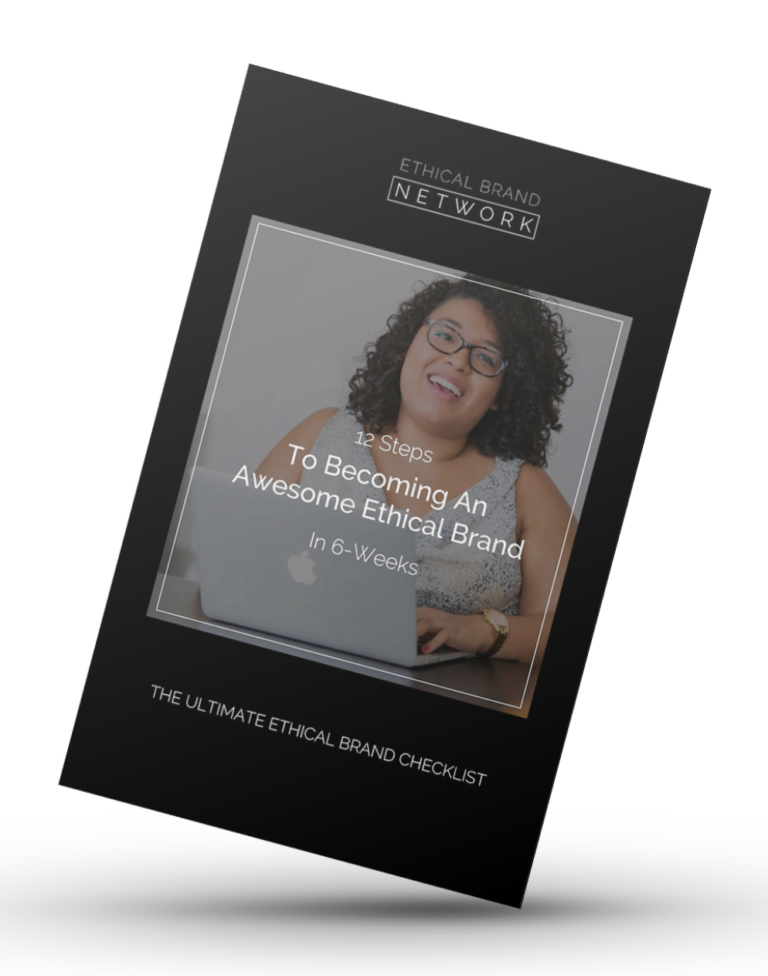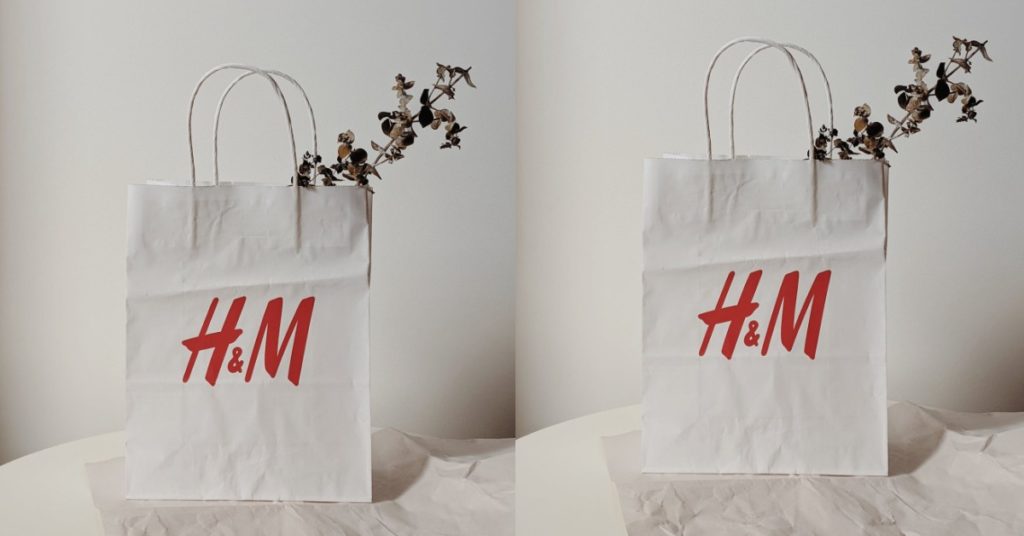It’s not uncommon to find an ethical fashion brand you love, to then discover 2 years later it has disappeared. It’s the same saga over and over again. Or at least that’s been my experience since I launched Ethical Brand Directory in 2016/17.
We see so many creative founders exploding onto the scene with an interesting product and/or fantastic giving back story, we all get excited, they exceed their crowdfunding target on Kickstarter and everyone is enthused. It seems there’s no stopping this brand.
They go all in at the start, full of passion, seizing every opportunity. They make it into a mainstream paper, a glossy magazine and even get featured on TV!
It’s a beautiful firework display of intention and goodwill that eventually, in many cases, sadly just burns out.
The frustration of finding brands that I loved, only to discover 2 years later they had disappeared is what prompted me to set up the Ethical Brand Directory in 2017. To help people like me and you, find beautiful brands that didn’t compromise on aesthetics for ethics. But that wasn’t enough – I realised Directory members needed a community too. After talking first hand to brands and seeing their struggle it inspired me to set up the Academy in 2018, as I was frustrated at seeing good businesses fail and passionate entrepreneurs burn out and give up.
In this article I share my experiences over the years and the top 10 reasons why ethical fashion businesses fail.
Why do Ethical Fashion Businesses Fail?

Sadly 50% businesses fail in the first year, according to the Small Business Administration (SBA). Not just ethical ones. The odds are not in your favour as a new business owner. But there are things you can do to help ensure your success.
Doing things the ethical way and operating sustainably is without a doubt a lot harder. Profit margins are lower, and production costs are higher. That’s the reality and price an ethical business owner pays for doing things right by people and the planet. It’s about the long game, not short sighted gains. The challenge is being able to last it out to reap the benefits.
Why is an Ethical Fashion Business More Expensive To Run Than a Fast-Fashion One?

There are a few models out there that can be very profitable. When people export goods from China for example, the individual unit price at wholesale could be as low as £2.50* and the RRP could be anything from £9.99* to £29.99* or more. With profit margins over 100%* of the cost price, you can see why the temptation to buy in bulk and sell cheap is too much for some people to resist, rather than stocking items that cost £15.00* per unit for the same item, which are ethically made.
The reality is, in fashion, garments are made by people – not robots. When products are ordered at mass, the price is driven down which also means the people making the items get paid less too.
In ethical production the emphasis is on fair labour, producing less and ensuring the livelihoods of the people who make the clothes. This means the cost to create a garment is higher, even when outsourced to another country where the cost of living is much lower and the pound is strong.

FAST TRACK YOUR BRAND
Get the 12 steps to becoming an awesome ethical brand
6 Week Challenge
We respect your information and comply with GDPR.
When a brand operates ethically, they tend to also pay attention to sustainability too (not in all cases, as I’ve seen with many vegan brands, sustainability is an often an afterthought). When you factor in the cost of ethical production (up to 60% higher than using fast and exploitative methods) and the cost of a sustainable supply chain (which can undoubtedly eat into profitability) it’s no wonder that ethical businesses go bust. There’s very little money left for marketing and getting those all important sales!
However, that’s a very shortsighted view, and we do need to work on changing the status quo. All businesses should be thinking about the long term impact they are having. Redefining what success looks like, has to change. A good business should give back, not just take. Operating ethically and sustainably is something we want to normalise at Ethical Brand Network.
In the meantime, we are doing what we can to help small independent ethical brands to thrive.
E-Commerce & Exploitation in Fast Fashion

Exploitation in fashion is not a new concept, and it’s not just an issue seen (or not seen!) with overseas production. It happens here in the U.K. too. The Boohoo scandal in Leicester revealed workers were earning less than half the minimum wage. Meaning Boohoo were literally getting rich through slave labour. I don’t know how that sits with you, but I certainly can’t support a brand that does that.
When it comes to ethical e-commerce stores it’s certainly a lot easier to set up a drop-shipping business and make a good profit on items that are produced cheaply, because it allows you to play with massive margins. Very few businesses want to have to hold onto inventory when it can be dealt with via drop-shipping. It would seem this model is very much favoured for ethical and sustainable businesses that don’t want to over-produce and favour ‘made to order’ which is far more sustainable.
Sadly, since we are all accustomed to shopping online, many of us tend to not think past the pretty images we see on the website. We are so far removed from the way things are made, it desensitises us. It allows us to shop without a conscience, because what we don’t know can’t affect us. Instagram and Like to Know it apps have been hugely influential in promoting over consumption – used correctly both can be a way to encourage people to shop less and invest in better quality products, therefore both valid considerations for ecommerce store owners.
At Ethical Brand Boutique (a new offering we launched during COVID-19) we have struggled with setting commission at a price that is fair for our brands (knowing their margins are slim) but that also generates enough money to cover the cost of running the boutique (and hopefully to make a profit). At the moment it’s a loss leader for us, but a fantastic perk for our brands. The greatest benefit is for our Directory visitors, allowing them to discover beautiful brands, their story and impact and shop from the same place.
Why Do Some Ethical Fashion Brands Succeed and Why Do Some Fail?

I’ve been learning about growing my own business, how to effectively scale, be transparent and observing the peaks and pitfalls of being in the ethical fashion niche since 2014. So much has changed, but much has remained the same.
I have been fortunate enough to cultivate a great network over the years, that has extended itself beyond London, and the U.K. As such, I am proud to know pioneers in the ethical impact investment space, entrepreneurs, CEO’s of institutions wanting to change the world, fashion businesses destined to do good and individuals committed to driving change. To say I’ve seen a lot is an understatement. To be honest, I have seen a lot of great brands not make it, and it’s for many of the reasons I state below. For most unsuccessful businesses or the ones that fail to get traction, it usually comes down to one thing – the founder. You cannot run a successful business alone. You cannot be the smartest person in your business. If you try and do it all, you will get nowhere fast and worst of all, many founders end up making impulsive outsourcing or business decisions that are made from a place of stress, scarcity and fear.
Sadly, many of the highly enthusiastic people, businesses and entrepreneurs I’ve met over the years have burnt out, run out of capital, or haven’t been able to adapt fast enough to the economic challenges.

FAST TRACK YOUR BRAND
Get the 12 steps to becoming an awesome ethical brand
6 Week Challenge
We respect your information and comply with GDPR.
Covid-19 has been a struggle for many, myself included. But it’s also been an absolute deal breaker for a lot of brand founders, who have had to seek out additional work to supplement their incomes and keep their businesses afloat. I am under no illusion that I may suffer the same fate one day, which is why I am always looking at ways to get people better than me into my business. To take responsibility for a failing business is not easy, but I have found that’s the first step founders need to take in order to turn things around.
Through my work as a business coach for Ethical Brand Directory and as a stylist, I have been able to work with many ethical fashion business owners. And I see the same thing again and again.
Here are the top 10 reasons why Ethical Fashion businesses fail:
#1. Ethical Fashion Founders Skip Customer Research

It’s an obvious but overlooked area many ethical fashion designers admit to. They come up with a product idea, design it, create it, all the while only having a semi-vague idea in mind for who it’s for.
There’s often very little research done for their target market. No customer avatar. No niche was identified. Whilst the purpose and thought behind the brand and making a positive impact can be very clear (and admirable) it’s often the reason for starting the brand in the first place. Sadly many founders build their businesses and then hope customers will come.
This tends to be the first thing I identify as overlooked research when I work with a new brand. They design a product to solve a problem they have, and say their ideal customer is themselves. They model their market entirely on themselves. They don’t carry out enough research on their markets and then try to target everyone, hoping to find a version of themselves amongst the entire population. Starting out with a clear niche is so important.
#2. Having No Clear USP For An Ethical Product

When a brand has a weak Unique Selling Point (USP), it’s hard for them to stand out in a highly competitive and saturated market. Being ethical and sustainable isn’t enough, these are now marketing buzzwords. A brand that has a clear USP and solves a problem people are willing to pay for, or is so aspirational people will save up and find a way to buy into it – is a brand that gets noticed.
Now that ethical fashion has finally caught the attention of the mainstream media here in the U.K. it’s imperative that a brand’s story is compelling, the products must look great, but due to higher price points they must also be aspirational, because no one wants to pay more and feel like they get less.
Essentially your USP needs to capture the hearts and minds of busy consumers. Stop them in their tracks and become something they cannot stop thinking about.
Communicating one’s USP sounds easy, but many struggle to articulate what they do and the benefits. Even I fall short in the copy department from time to time. This is why it’s best to work with someone who knows how to create strong sales copy that converts. Is it expensive? Well, an excellent copywriter isn’t cheap. But a good one will do until you can afford to invest in someone much better down the line. And remember copy needs to be split tested and tweaked as high-performing content is dependent on current language, and as you and your business evolves your messaging will evolve too.
Remember to keep this up to date!
#3. Not Substantiating Their Ethical + Sustainable Fashion Credentials

This is something that is becoming really important, as one bad piece of press can destroy a brand. Look at H&M – whilst not quite destroyed, they are always used as an example of greenwashing. It’s not enough to just say you’re ethical and sustainable. You have to prove it.
For a small brand that hasn’t got a big marketing budget, this could spell out disaster if an influencer finds your brand credentials to be flakey. They will have no problem naming and shaming you, the last thing you want to do is get a bad rep in the ethical niche. Did you see the Lucy + Yak Story? A much loved ethical brand (not to my taste) but one with a vast following and devoted following, got involved in the size-inclusivity conversation without having their own house in order. Lucy & Yak were called out on their own oversight and lack of size-inclusivity, accused of fat phobia and other racial biases. It was a hot mess.
The moral of the story here is don’t claim to be something you are not. Make sure you are totally transparent about what you do or don’t or where you fall short and what you are doing to address it, don’t wait to get called out on it.
Check out my What is greenwashing? blog to understand why honesty is so important and why as a small independent brand you take the time to connect with your audience. Loyal followers are far more forgiving if you do make a boo-boo. And let’s face it, no founder on the planet is infallible.
#4. Lack of Knowledge and Understanding of Digital Marketing And How to Market A Fashion Brand

I will sound harsh now, but I meet far too many founders who just aren’t armed with the know-how to get ahead with SEO. I see far too many websites that don’t meet the minimum standards to even get noticed in Google. No blogs. No content on a Google Business page. No active twitter content or Pinterest boards – these are all super important channels for SEO. I’m a complete laggard when it comes to YouTube, but it’s an overlooked tool for boosting traffic to your website and building your brand.
As a marketer I have a good basic knowledge of on page SEO, but the advanced website bits and SEO is what I ask the experts to help me on. Get blogging! Create evergreen content and make sure you share on repeat and use the power of communities to help get your content seen and re-shared.
#5. Isolation, Overwhelm + Lack of Accountability

Being a business owner, particularly during COVID-19, is tough. Many business owners work from home to save money on an office or studio. But that comes with isolation, distractions from family members, household chores, and no break in the monotony of being at home.
Overwhelm can set in. Lack of community can lead to isolation and when you’re not around others or interacting with people outside your own household, accountability can become an issue.
Business owners are very good at making up excuses as to why they haven’t done things. Excuses are clues to what your personal limitations could be. Working with others and stepping outside your comfort zone can help with point #7 and building confidence. When we feel like we’re failing it’s hard to find the motivation to push past our own blockers. It’s easy to give up and find excuses to appease our feelings about not delivering on what we said we’d do. Because we’re not committed to these things publicly, it’s easy to let them slide.
Working with accountability coaches can be expensive and this is why many founders just try to do everything alone, resulting in to-do lists which are unrealistic and don’t get done.
At Ethical Brand Directory we have monthly accountability calls to help our members stay on track.
#6. Poor Branding & Ineffective Communication

It’s often hard to explain your own business in 3 short bullet points when you’re overwhelmed, feeling isolated, and not getting constructive feedback regularly. When founders run a business they can get so bogged down with the day-to-day, trying to catch a break, and so desperate to get traction that they jump onto trend after trend, slowly and detrimentally changing and weakening the brands purpose.
Before they know it, a founder cannot articulate their brands USP clearly, all the while sending mixed messages out to the world. It’s hard to be objective about your own business when you feel so detached from the reason you set it up.
Having someone help direct you with what to put on your homepage, your about page, and your ethics and sustainability page is essential. It can help with SEO and point #3.
At Ethical Brand Directory we help our members by providing useful templates.
#7. Ethical Fashion Founders Lack of Self-Confidence

This is the saddest part for me, when a founder comes out all guns blazing, only to burn out after 3 months of working 15-hour days and then be unproductive for the next 3 months. This cycle can have an adverse affect on their confidence, calling their very purpose into question.
Being in a community and having regular contact with business owners that face the same challenges as you is so important. It helps to counter imposter syndrome, to overcome all problems mentioned in point #5, and can help cultivate positive associations with your efforts by refocusing your energy on what’s working, rather than what’s not.
Working with a confident coach in business is definitely a luxury many brand founders cannot afford, which is why as an ex-process confidence coach I make it my business to boost the moral of our members, by celebrating their wins and helping to find them PR opportunities and help boost their self-esteem.
At Ethical Brand Directory our tight knit community inspires confidence and provides a safe space for our members to grow their confidence.
#8. Brand Founders Can Often Burn Out Due to Lack of Self-Care

When you’re working a 15-hour day, it leaves very little time for healthy eating, quality sleep and exercise.
Every successful entrepreneur you meet will tell you how important exercise and self care is for your mental and physical well-being.
The people who tend to suffer the most are the ones who lack consistency in their routines. I find myself hearing the same excuses as to why they do not take care of themselves.
It’s hard to watch as I know first hand how overworking can cause depression, weight gain, lack of motivation, depletion of confidence and serious health issues.
It’s also an overused expression but we all have the same 24-hours in a day.
Some people are just better organised and invest their time into things that make a big impact. Others spend all their time on things that make very little difference at all.
It’s not how much we do, but what we do each day that matters, especially when we’re in business.
Quality time spent on things that move the needle is far more productive than spending 15-hours at your laptop stressing about all the things you have to get done.
When you find the sweet spot where you’ve nailed work-life balance, productivity will flow so you’ll have plenty of time for fitness, sleep and self-care.
Routine, consistency and accountability are key factors. As is determining YOUR productivity zones.
I find mine are early morning and late evening. Mid-day is best for exercise and chores. I take either a Saturday or Sunday off from work too, as this means by Monday I’m ready to do it all again. No rest at the weekend means I start the week tired, overwhelmed, and likely to make poor choices, when done on repeat it’s a recipe for burn-out and a massive confidence crushing episode.
#9. Start Up Ethical Fashion Brands Have Limited Funds to Pay for Things

This one feels like a chicken and egg situation. Investing money into professional services can feel painful when you’re not profitable. But we all know in business you have to spend money to make money.
Many founders try to do everything themselves, opting to save money, but which inevitably leads to point #6. This can lead to frustration and a massive burn through of finances in the long-term. It’s a learning process – and that can be rewarding if you can afford to wait time until you start to see results. Sadly not many people in this world are excellent at all aspects of business. Would you pay a knowingly inexperienced freelancer to run your FB ads for you? No? Then why would you do it yourself? The result will be the same: an expensive lesson, low, if any results, and data you probably cannot understand.
I see two things happen: new business owners are quick to hire outside help to get tasks done, but get their fingers burnt. As mentioned in the paragraph above, cheap freelancers are cheap for a reason. If you want quality, expertise and fast results, you have to pay for it. Avoid Fiver… you get what you pay for. Plus it’s hardly an ethical solution to outsource it to another country and then pay breadcrumbs to the person tasked to do it.
The second thing I see all the time is founders paying a freelancer or agency to carry out marketing, such as PPC or to run Facebook Ads, do their PR, or run their social media. The problem with this is that most face problems #1, #4 and #6. Their money is wasted time and time again because they aren’t targeting the right people, and their messaging doesn’t resonate. They don’t understand the processes for which they are paying and so have no idea what to expect, or how to manage the relationship to get results.
Let me say this: Nobody knows your business better than you, if you haven’t got what’s in your head documented you’ll find it hard to outsource work.
Taking the time to create little manuals and little resource-hub on your Google Drive will make it much easier to delegate work out when the time comes.
There are so many people out there that will take money from inexperienced new business owners, and in fact that’s who they target because it’s much easier to take money from someone who doesn’t know what to expect. It’s scandalous, but a reality.
Then…. there’s working with people who are seeking work from a place of financial or time scarcity. Always a recipe for disaster. Despite me knowing better, and working with people I thought were competent, I have been bitterly disappointed with the outcomes, and I know this is because I have chosen to partner with people who have been struggling with personal issues and under financial strain.
The reason I share this is because we all go through these ‘patches’ and we all encounter people that nearly wreck our beloved businesses. And very often it’s not their fault – it’s hard to break away from people you like, but aren’t delivering. When you’re an ethical business, you tend to deeply care about the wellbeing of those you work with – which makes these situations even worse to deal with.
Sadly as business owners we have to identify the problems and tackle them head on. Waiting and giving multiple chances can be very costly to our businesses. Sometimes that’s simply saying goodbye to people who just aren’t driving your business forward. I met so many business owners who stick with ineffective staff, allow personal assistants to make too many mistakes or continue to work with incompetent accountants, to the detriment of their business. I too have felt the pinch here, so can totally relate!
#10. Many Fashion Founders Dislike Sales and/or Accounting

Then we have my favourite – when a founder has a strong resistance to working on sales. Many founders just want the sales to effortlessly pour in (who wouldn’t?) but aren’t setting themselves sales related targets (that are realistic with their knowledge of marketing, and budget). They fill their days with being busy on tasks that aren’t optimising their sales funnels.
They don’t start each day focused on money making activities. A lot of this is due to point #5, when founders are left trying to do it all, and they very often end up occupied with doing nothing at all. Rationalising all the learning and trial and error, they in essence end up doing the same thing again and again, and expecting results whilst achieving nothing in the way of sales.
*figures used throughout are for example only. Wholesale unit prices vary greatly depending on country of origin, materials used. Shipping + taxes can eat into the margins and there may be less profit.
I hope you’ve found this helpful and I welcome your comments and experiences of building your ethical business below. We offer free webinars and Wednesday Wisdom sessions on a monthly basis, as well as having an Ethical Brand Academy, which is a self-service library full of resources to help you build your business.
